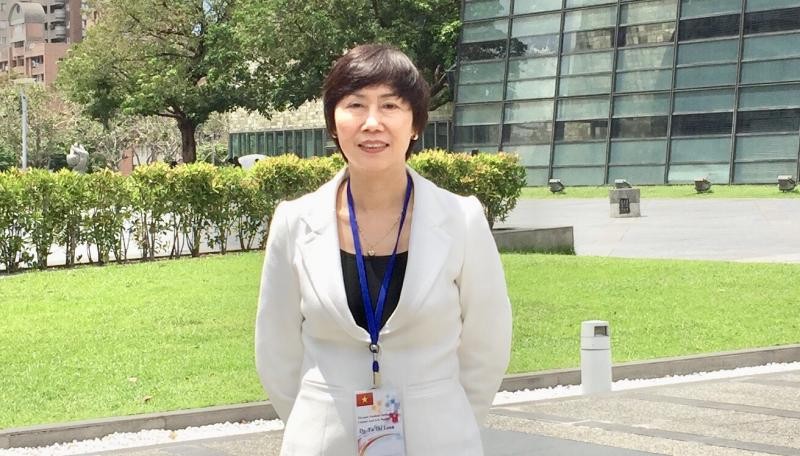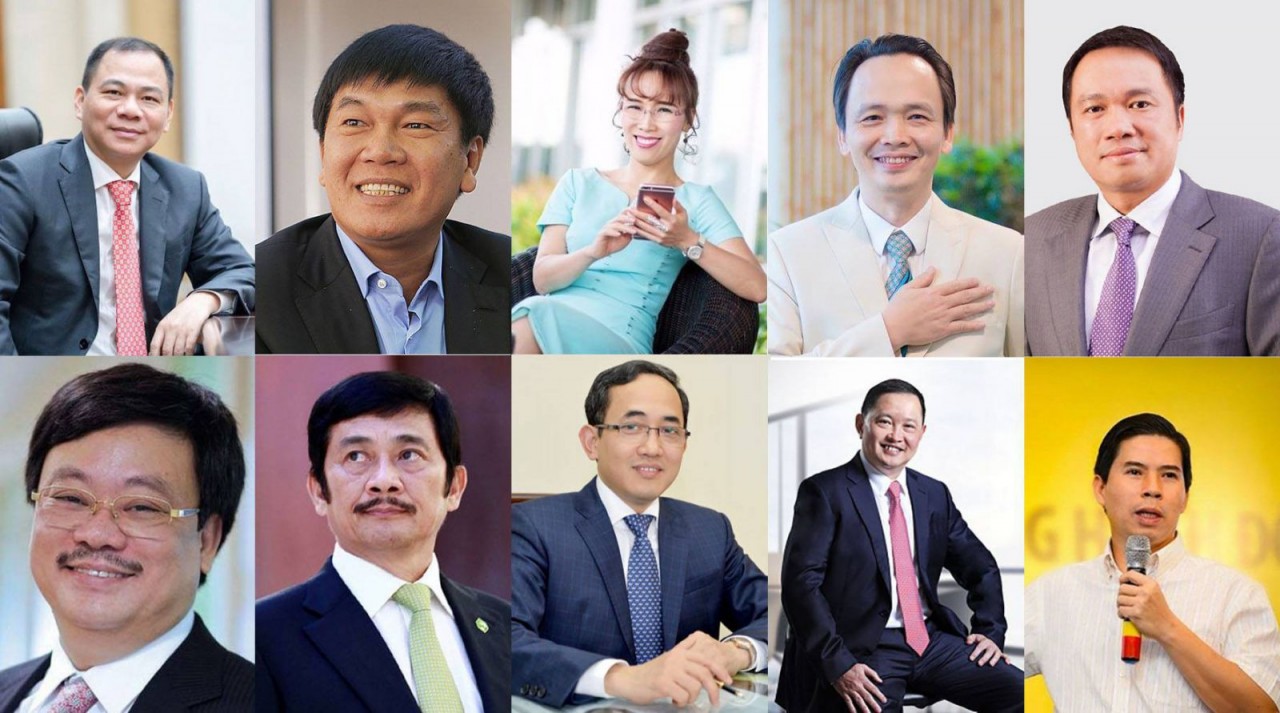
Business culture in the context of international integration
Latest
 |
| Prof., Dr. Tu Thi Loan, Vice President of Vietnam Association for Business Culture Development. |
The business class appeared early in the human history, as handicraft works separated from agricultural activities and demands for trade grew. During such periods, entrepreneurs were mainly traders, specializing in commercial activities.
By the 17th-18th century, along with the development of commerce and industries, the definition of entrepreneurs expanded to other areas such as manufacturing, trading and finance… At the end of 19th century and the beginning of the 20th century, following significant leaps in science and technology, coupled with major expansions of international trade, entrepreneurs were often considered to be founders, leaders of growing number of companies and corporations.
Back to the old days in Viet Nam, entrepreneurs often conducted trades and traditionally, those “traders” were regarded negatively by many as “cheaters and deceivers”. It was not until the French Colonial period, as the society started to establish trading relations in a capitalist way that the definition of entrepreneurs expanded to those who engaged in manufacturing as well as sales and services. At the moment, “entrepreneurs” became a relatively popular concept in political, administrative, academic documents as well as in daily life.
With the competitiveness in a world where “the strong feed upon the weak”, during the early period of capitalist accumulation, entrepreneurs were often considered to be cunning and full of schemes to enrich themselves, ready to optimize their profits regardless of cultural, ethical values and human emotions…
Nevertheless, following social developments, higher social standards and requirements for further international integration, cultural values have played an increasingly important role in manufacturing, sales and services. Business culture has become the soul of corporate culture. Corporate culture is proportionate with business culture. Outstanding entrepreneurs often demonstrate abilities to reinforce trust, to inspire or transform mindsets, creating better corporate culture.
As Viet Nam moved to develop a market economy, the Party and the State have highly praised the role of entrepreneurs. Entrepreneurs are leaders of businesses, backbone of the economy. In order to establish a strong, prosperous country in accordance to 13th National Congress of the Communist Party of Viet Nam (CPV), building business culture in the context of international integration must receive more attention.
There are different understandings about business culture but for the most part, it is often considered to be a collection of values, standards, conceptions and behaviors of entrepreneurs in their leadership and management of businesses. Basically, business culture is the culture of those who conduct businesses; the goal of entrepreneurs is creating profits, yet business culture helps them in creating such profits in a cultured, beneficial manner. For many people, the essence of business culture lies in four factors: the Heart, the Talent, the Mind and the Moral.
 |
| Business culture is often considered to be a collection of values, standards, conceptions and behaviors of entrepreneurs in their leadership and management of businesses. |
Regardless of their sectors or starting points, entrepreneurs’ overall traits are divided into four sub-categories: business capability, quality, morality and style.
Foremost, business capability often demonstrates in a businessman’s ability in planning, organizing and managing the company. It is often expressed in the capability to devise and implement a possible, cohesive development strategy. Degrees and knowledge are merely the first step. A businessman must restlessly study, experience to promote his/her understanding and improve himself/herself.
In the context of international integration, entrepreneurs must be able to explore international market, understand international regulations and lead the company to manufacture products meeting international standards. Entrepreneurs must continuously improve on their management skills to promote their businesses’ standings in a modern domestic market economy, as well as to establish their companies’ position and competitiveness with other foreign businesses. Digital technology and the fourth industrial revolution also required Vietnamese entrepreneurs to constantly innovate, stay updated with the fast-pacing development of science and technology toward digital transformation.
In addition, business quality includes entrepreneurs’s physical, mental state as well as special traits that deemed compatible with managing manufacturing, sales and service activities such as an ambitious yet clear vision of success, a calm and calculated mind yet ready to take risks, a generous and audacious personality…
In the current setting of international integration, facing fierce competition coupled with unpredictable changes of the market, Vietnamese entrepreneurs must strive to affirm the standing of their brands as well as Vietnamese products on the international market, having the brains and courage to face numerous challenges. Pham Nhat Vuong, Nguyen Thi Phuong Thao, Trinh Van Quyet, Mai Kieu Lien… are among the prime examples of entrepreneurs with innovative spirit, ready to prove themselves in unfamiliar territories, markets to achieve new milestones.
As the global landscape is filled with instability and risks caused by natural disasters, wars, epidemics…, entrepreneurs must be sensitive, responsive while remaining confident, independent and decisive. Most successful entrepreneurs are no strangers to failure, being able to bring themselves up to strive toward greater goals. They are stoic, resilient and can remain focused even under pressure.
 |
| Top 10 entrepreneurs on the Vietnamese stock market. (Photo: Business Forum) |
Business moral requires that aside from universal moral values of a human being, entrepreneurs must stand by specific ethics of those conducting manufacturing, sales and service. Apart from basic ethics such as conscience, responsibility, dignity, honor and reputation… they must act in according to the morality of their professions.
Enriching themselves must go along with contributing to their workers, the society and the countries. Businesses must refrain from actions that could violate the consumers’ safety and rights such as making counterfeits, selling unhealthy products… Businesses must pay their taxes to the Government without neglecting the protection of the environment and social responsibilities such as supporting the community, doing charitable work and humanitarian activities…
On the international markets, Vietnamese entrepreneurs must comply with international law and maintain their reputation. The deeper the international integration gets, the higher business ethics requirement becomes. For example, Vietnamese businesses must avoid having the “yellow card”, “red card” on their products like they were previously warned by international organizations.
Business style often reflected through behaviors, manners, lifestyles of entrepreneurs, not only in leadership, business management, business-related interactions, but also in their daily lives. Some entrepreneurs have created bad public impressions as they believe “money is power”. The stories of “the Beauty and the Rich”, entrepreneurs having illiterate and offensive behaviors like swearing on social networks, insulting the dignity and honor of others are no longer rare.
Therefore, for further successful international integration, new-era entrepreneurs must learn to inherit traditional values while adapt to civilized, modern values of the humanity to improve themselves. Doing business is not just a profession, but also a science and an art. Skillful leadership, management and social interactions could contribute to entrepreneurs’s positive impression with the public, reputation within the industry and trust in other social relations.
In the end, in order to “stand shoulder to shoulder with the great countries”, we need a new generation of entrepreneurs with capability, quality, morality and style approaching international standards, meeting requirements for further integration and development.

| EVFTA helps buffer economic downturn impact: The Business Times Given the COVID-19 epidemic, the EU-Viet Nam Free Trade Agreement (EVFTA), which entered into force in August 2020, has helped to boost two-way trade and ... |

| A successful Journey by a Vietnamese business: Overcoming pandemic and Going further In 2007, after officially joining the WTO, the Vietnam economy had markedly prospered. From that point on, Viet Nam’s Internet and IT infrastructure have continuously ... |

| Top legislator to hold online working session with US business delegation National Assembly Chairman Vuong Dinh Hue will chair an online working session with a high-ranking delegation from the US-ASEAN Business Council (USABC) on September 30, ... |

| Business opportunities abundant for Swiss firms in Viet Nam: seminar Business, trade and investment opportunities in Viet Nam were introduced to businesses of Geneva and French-speaking states of Switzerland during a seminar in Geneva on ... |

























